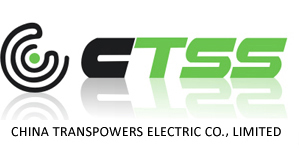Home >> News Center
Powering sustainability with EconiQ Transformers
2023-11-30 Hitachi Energy
A custom-made solution
EconiQTM Transformers are Hitachi Energy solutions for enhanced sustainability performance. These are customized solutions co-created with our customers to meet their needs and expectations. Every time we manufacture EconiQTM transformers, we optimize our solutions to adapt as necessary to the challenges the environment might pose.
EconiQ™ products need to fulfill specific requirements to be labeled as “EconiQ™”, including the ability to reduce carbon footprint, enhance safety, and protect the ecosystem by using biodegradable fluids with higher flashpoints compared to mineral oils. For this reason, all EconiQ™ transformers are designed and produced following clear environmental pillars such as decarbonization, safety for both people and ecosystems, and responsible use of materials throughout their life cycle.
Paving the way for technology and nature to co-exist
When we inked our collaboration with Andorra’s Forces Eléctriques d'Andorra (FEDA) in 2017, we immediately recognized the great challenges that the project was presenting. Andorra has a unique ecosystem rich in fauna and flora – it has more than 70 lakes, three natural parks, 65 peaks above 2,500 meters in altitude, and 10 percent of the country’s territory declared a UNESCO World Heritage Site.
Thus, for these special characteristics of the territory, and in pursuit of its best possible preservation, FEDA is fully committed to protecting the environmental impact of its activities and asks its suppliers and partners to support them in this journey.
The minimal environmental impact included in the transformer’s requirements for La Gonarda substation has led to the creation of an environmentally optimized design of a 20/26 MVA, 106/21 kV, three-phase power transformer, not only with a reduced CO2 footprint but also with an extremely low acoustic level (30 percent less than conventional values requested by this customer).
Requirements, such as noise pollution management, were considered critical, as were energy efficiency, landscape integration, reliability, and transparency of the transformer’s environmental footprint, in the design specifications of the transformer.
All are precisely shaped to accommodate the location of the La Gonarda substation in a dense, wooded mountainous area near a residential neighborhood, with the aim of limiting disturbance of people and wildlife to the minimum.
The solution needed by FEDA was technology excellence with high sustainability performance that could coexist with Mother Nature without disrupting the surrounding ecosystem.
It was inevitable that the demand for low noise levels was included in the requirements and influenced the design of the EconiQ™ Transformer. While it’s not the first time noise reduction was listed as critical customer criteria, for this project the exceptional operating conditions made it especially challenging.
From our side, besides meeting the criteria set by the customer, we also included within the design insulation materials and optimized cooling techniques to minimize vibrations and electromagnetic interference of the transformer. In addition, to further improve safety, the transformer is filled with high fire point fluid and resides inside a room with an isolating wall. Those supplementary characteristics not only help in reducing noise levels but also contribute to physically isolating the transformer with installed barriers and creating extra containment levels in case of transformer failure.
From the start, co-creation was at the heart of our mission. In the case of a bespoke design, continuous and tight collaboration throughout the project was necessary to achieve the most sustainable solution.
With this collaboration, we improved the transformer’s operational efficiency during its lifetime expectancy and delivered a reduction of around 15 percent of the total CO2 footprint compared to the conventional design.
Aiming to support transparency about the environmental impact of our transformers and enabling informed decision-making at the asset level over its complete lifetime, a life cycle assessment (LCA) report and a decommissioning manual for safe and environmentally friendly material recovery were delivered as part of the EconiQ™ value proposition.
Sustainability across the full life cycle
The decommissioning manual suggests options for materials recycling, such as copper can be recycled; aluminum can be downcycled, some parts go to incineration, etc., so the customer can manage the end-of-life of the transformer.
Although each customer has its own asset decommissioning policies, Hitachi Energy is proud to offer these guidelines and emphasize how decommissioning at the end of a transformer's life also plays a role in its carbon footprint.
Having a great heritage and expertise in manufacturing transformers has allowed us not only to meet all the requirements of the customer but to boldly go beyond that, taking into account within the design not only safety but also the aesthetics of the overall substation, so it could be seamlessly integrated with the style of the houses already existing in the area, and with the surrounding nature.
In conclusion, this case of cooperation between Hitachi Energy and FEDA sets a guideline in the path toward the sustainable decarbonization of the electricity sector. It allows to establish precedents in the definition of sustainability criteria from the process of awarding and evaluation of transformers taking into account the different stages of their life cycle – from start to finish, raw materials to end-of-life.


 Hydro Turbine Generator Units
Hydro Turbine Generator Units
